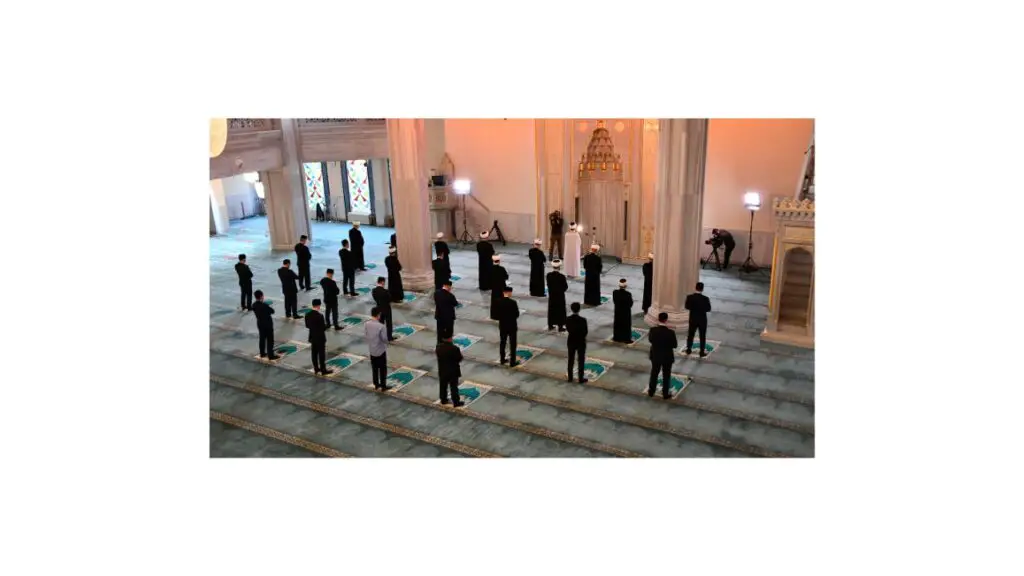

Prayer, known as “Salah” in Islam, holds a paramount position in the lives of Muslims. It is not merely a ritualistic act but a profound connection between the individual and the Divine. The significance of prayer in Islam goes beyond the act itself; it encompasses spiritual, social, and psychological dimensions that contribute to the holistic well-being of believers. This article delves into the multifaceted importance of prayer in Islam, elucidating its various aspects and its role in shaping the lives of Muslims.
Spiritual Connection and Submission
At the core of Islam lies the concept of submission to the will of Allah, and prayer serves as a means of manifesting this submission. Muslims perform five daily prayers at specific times, demonstrating their obedience and devotion to Allah’s commands. This consistent practice fosters a strong spiritual connection, reminding believers of their ultimate purpose and their reliance on the Creator. The ritualistic motions of prayer, accompanied by recitation of verses from the Quran, are a tangible way for Muslims to communicate with Allah and seek His guidance.
Discipline and Structure
Islam places great emphasis on discipline and structure in one’s life, and the daily prayers serve as a fundamental mechanism to instill these values. The fixed times for prayer punctuate the day, grounding Muslims in their faith amidst the hustle and bustle of worldly affairs. The discipline of adhering to these timings imparts a sense of order, allowing individuals to strike a balance between their spiritual and worldly responsibilities.
Cleansing of the Soul
Before engaging in prayer, Muslims perform ablution (wudu), a symbolic act of purification. This physical cleansing mirrors the cleansing of the soul from impurities, both spiritual and psychological. As believers stand before Allah in prayer, they are encouraged to let go of distractions and focus their minds solely on the Divine presence. This process of purification serves to renew the individual’s commitment to faith and aids in shedding negativity, thus promoting mental clarity and emotional well-being.
Community and Unity
While prayer is a personal act of devotion, it also plays a pivotal role in fostering a sense of community and unity among Muslims. The congregational Friday prayer (Jumu’ah) is a prime example of this aspect. Muslims gather at mosques to pray together, reinforcing the sense of belonging to a larger spiritual family. The collective recitation of Quranic verses and supplications enhances the feeling of camaraderie, emphasizing the idea that they are all part of the ummah, the global Muslim community.
Gratitude and Reflection
Prayer provides Muslims with an opportunity to express gratitude for Allah’s blessings and reflect on their lives. During their prostration, the closest physical position to the ground, believers are reminded of their humble origin and their ultimate return to Allah. This act of humility encourages gratitude and introspection, prompting individuals to assess their actions and strive for self-improvement.
Resistance to Temptations
In a world filled with distractions and temptations, prayer serves as a shield against negative influences. It acts as a regular reminder of one’s faith and values, helping individuals resist behaviors that might contradict their beliefs. Engaging in daily prayer cultivates self-control and strengthens the resolve to uphold moral principles even in the face of challenges.
Self-Discipline and Patience
The act of prayer requires self-discipline and patience. Muslims may find themselves in various situations, whether busy with work or facing personal difficulties. Yet, the commitment to stopping and engaging in prayer highlights the importance of prioritizing the connection with Allah over worldly matters. This patience and determination translate into other areas of life, instilling resilience and perseverance.
Conclusion
Prayer in Islam goes beyond a mechanical routine; it is a multifaceted practice that enriches the spiritual, emotional, and psychological aspects of a believer’s life. Through prayer, Muslims establish a deep connection with Allah, reinforcing their faith and submission. It provides structure, discipline, and cleansing to their daily lives while fostering a sense of unity within the community. Furthermore, prayer cultivates gratitude, introspection, resistance to temptations, and self-discipline. As Muslims bow and prostrate in prayer, they not only engage in an ancient tradition but also embark on a profound journey of self-discovery, strengthening their relationship with the Divine and enriching their overall well-being.
Why is prayer important in Islam?
Prayer, known as Salah, holds immense importance in Islam as it serves as a direct link between the believer and Allah. It is a means of expressing devotion, seeking guidance, and fostering a strong spiritual connection.
How often do Muslims pray?
Muslims are required to perform five daily prayers at specific times: Fajr (dawn), Dhuhr (midday), Asr (afternoon), Maghrib (sunset), and Isha (night). These prayers punctuate the day, reminding believers of their connection with Allah throughout their daily activities.
What is the spiritual significance of prayer in Islam?
Prayer allows Muslims to submit to the will of Allah, reinforcing their sense of purpose and reminding them of their ultimate reliance on the Divine. It provides a platform to seek forgiveness, blessings, and guidance, enhancing their spiritual journey.
How does prayer promote discipline and structure?
Islam places a strong emphasis on discipline and structure in life. The fixed times for prayers provide a routine that helps Muslims balance their spiritual and worldly responsibilities, fostering a sense of order and self-control.
Is prayer only an individual practice?
While prayer is a personal act of devotion, it also promotes community and unity. Congregational prayers, such as Friday prayers (Jumu’ah), bring Muslims together in mosques, reinforcing a sense of belonging to the global Muslim community.
How does prayer contribute to mental and emotional well-being?
The act of prayer encourages self-reflection and gratitude, promoting mental clarity and emotional balance. It offers a moment of introspection, allowing believers to let go of distractions and negative emotions.
Can prayer help resist temptations?
Yes, regular prayer can serve as a shield against worldly distractions and temptations. By constantly reconnecting with Allah and reaffirming their faith, Muslims strengthen their resolve to uphold their values even in challenging situations.
Does prayer cultivate patience and self-discipline?
Absolutely. The commitment to stopping and praying, despite external circumstances, cultivates self-discipline and patience. This practice extends to other areas of life, helping Muslims remain steadfast in the face of trials.
Are certain Surahs (chapters) more powerful in prayers?
Yes, certain Surahs hold special significance due to their themes and spiritual depth. Surah Al-Fatiha, Surah Yasin, and Surah Al-Ikhlas are among the most powerful and frequently recited Surahs in prayers.
How does prayer impact daily decision-making?
Regular prayer keeps believers connected with Allah’s guidance, influencing their decision-making processes. By seeking Divine wisdom, Muslims are more likely to make choices that align with their faith and values.





